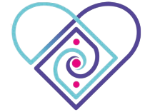(Aether Bios Clinic) Bridgeford’s Best Bites: Osteopathy Tips
COCCYX PAIN (COCCYDYNIA)
Coccydynia is a pain felt in the coccyx or tailbone. It can accompany injury or strain to the coccyx or surrounding muscles, ligaments and tendons. The word coccyx comes from the Greek word meaning cuckoo, referring to its beak-like shape pointing towards the front of the body.
Anatomy: The coccyx is the last few vertebrae at the base of the spine. It consists of small, loosely fused bones that attach to the sacrum, the triangular bones at the base of the spine just above the cleft of the buttocks. It is helpful with weight bearing when sitting and is an important attachment site for various muscles, tendons and ligaments.
Symptoms: Pain and tenderness in the area just above the buttocks is the main symptom. This may be dull or achy and occasionally sharp. The pain can be aggravated when sitting down, moving from sitting to standing, standing for long periods, having sex, emptying the bowels or during a menstrual period. The pain may extend to the back, buttocks and hips and may cause sciatica. Bending over, driving and other daily tasks may be difficult and the pain may affect sleep. Serious coccyx injury may involve spinal cord injury causing severe back or neck pain, loss of bladder or bowel control, weakness in arms or legs or paralysis in part of the body.
Causes: Trauma such as a direct impact, fall, accident or injury may bruise, dislocate or fracture the coccyx. Other common causes include poor posture and childbirth; prolonged or repeated strain on the coccyx from poor posture while driving and sports such as rowing and cycling; being over-weight can put more pressure on the coccyx, being under-weight can remove the natural cushioning for the coccyx. Less common causes can be bony growths on the coccyx, arthritis, if it is too rigid or too flexible and in rare cases, infection from a pilonidal abscess, or cancer. Often there is no obvious causes and it may relate to wear and tear due to ageing and wearing down of the cartilage, causing the bones to fuse.
Diagnosis: You will need to see your doctor if the pain persists, self help doesn’t ease the pain, the pain is very severe or you have bleeding, high temperature or pain away from the coccyx. The doctor will examine you to check for more serious causes of the pain, such as fracture or infection. X-rays, injections, MRI or a CT scan may be required as well as blood tests to help diagnose the cause.
Treatment: Self help treatment includes avoiding sitting or standing for a prolonged time, using hot and cold packs applied to the tailbone, using a special coccyx cushion with a space cut out to allow freedom from pressure on the coccyx, avoiding wearing tight trousers that may put pressure on the coccyx. Laxatives may be helpful if opening the bowels aggravates the pain; over the counter pain medication may also be helpful.
The doctor may prescribe stronger pain killers or anti-inflammatory medication. Corticosteroid injections, combined with local anaesthetic or nerve block injections may be used to reduce pain and inflammation. Stretching exercises to relax the muscles around the tailbone, postural advise, massage and manipulation may be recommended. Surgery is only recommended in severe cases and may involve removing some or all of the coccyx (coccygectomy) and this can have a long recovery time.
Osteopathic/Manual Management: Take a detailed case history to understand the nature of the problem and surrounding issues. Examine the coccyx, pelvis, back and legs and all surrounding tissues; muscles, ligaments, nerves, fascia, etc., for movement, strength and functionality and assess nerve pathways. Perform orthopaedic and neurological tests and determine the root cause. Treat to reduce tension, nerve irritation and pain. Advice regarding exercise and stretching of back, buttocks and legs. Treatment may include manipulation, deep soft tissue massage, trigger point therapy, muscle energy techniques, fascial techniques, dry needling, etc.
We are happy to advise you on your health matters and offer a free 15 minute joint and spinal check, without obligation.
Lin Bridgeford DO KFRP MICAK MICRA FSCCO MSc
Registered Osteopath & Kinesiologist & Yoga Teacher
Aether Bios Clinic
Saltdean
01273 309557
07710 227038
